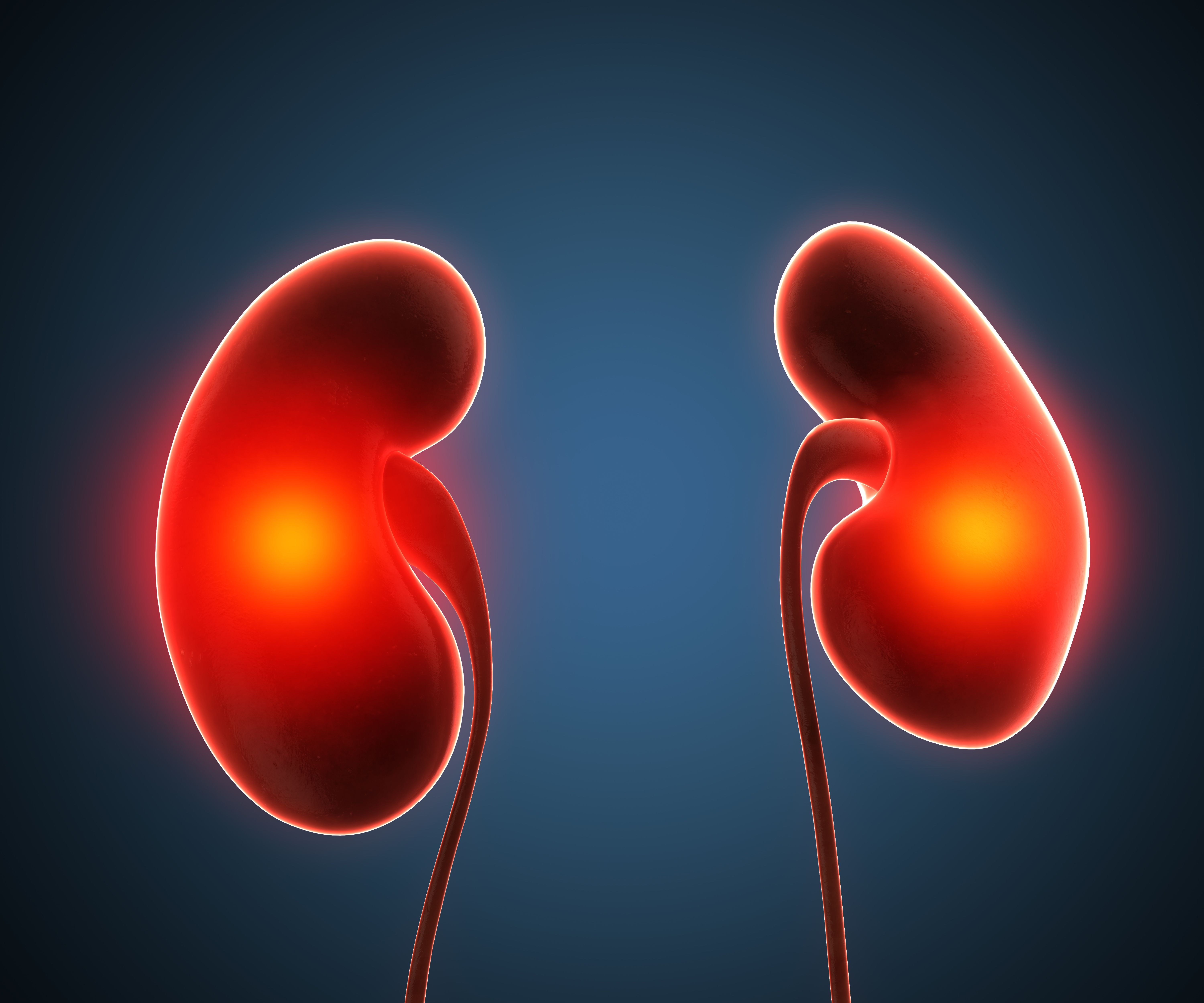Pembrolizumab/Belzutifan Improves DFS in ccRCC Following Nephrectomy
Pembrolizumab plus belzutifan is the first combination therapy to improve DFS vs pembrolizumab monotherapy in the adjuvant treatment of those with RCC.
Pembrolizumab plus belzutifan is the first combination therapy to improve DFS vs pembrolizumab monotherapy in the adjuvant treatment of those with RCC.

Pembrolizumab (Keytruda) plus belzutifan (Welireg) improved disease-free survival (DFS) compared with pembrolizumab plus placebo in patients with clear cell renal cell carcinoma (RCC) following nephrectomy, according to a news release from the developer, Merck.1
In the phase 3 LITESPARK-022 trial (NCT05239728), pembrolizumab plus belzutifan achieved a statistically significant and clinically meaningful improvement for DFS vs pembrolizumab plus placebo control therapy. The analysis for the key secondary end point of overall survival (OS) remains ongoing.
Regarding safety, the toxicity profile of the pembrolizumab plus belzutifan combination was consistent with what has been observed in previously reported trials.
The developer plans to present results from this trial at an upcoming medical conference and share them in discussions with global regulatory authorities.
"[Pembrolizumab] monotherapy given in the adjuvant setting remains an important treatment choice for patients with [RCC] at an increased risk of recurrence following surgery and is the only approved option to have significantly improved [DFS] and [OS] in this disease setting. Still, many of these patients do remain at risk of recurrence and continue to represent an unmet need," M. Catherine Pietanza, MD, vice president, global clinical development, Merck Research Laboratories, said in the release.1 “These encouraging results of [pembrolizumab] in combination with [belzutifan] from LITESPARK-022 demonstrate the potential to provide additional treatment options for those most in need.”
LITESPARK-022 is a multicenter, randomized trial that enrolled a total of 1841 patients who were randomly assigned to receive either pembrolizumab plus belzutifan or pembrolizumab plus placebo. Pembrolizumab was administered at 400 mg intravenously every 6 weeks for about 1 year in both groups, belzutifan was administered orally at 120 mg once daily for about 1 year, and placebo was administered orally.
Eligible patients in the trial were 18 years and older; had histologically or cytologically confirmed clear cell RCC per American Joint Committee on Cancer guidelines with or without sarcomatoid features; had undergone a nephrectomy and/or metastasectomy within 12 weeks of randomization; and had intermediate-high risk, high risk, or M1 no evidence of disease RCC per pathological tumor-node metastasis and tumor grading.2 Additional criteria included an ECOG performance status of 0 or 1 within 10 days of randomization, adequate organ function, and willingness to use contraception for both male and female patients.
Reasons for exclusion included major surgery other than nephrectomy plus resection of preexisting metastases for those with M1 no evidence of disease, a pulse oximeter reading of less than 92% at rest, clinically significant cardiovascular disease within 6 months of study treatment, preexisting brain or bone metastatic lesions, and prior systemic therapy or radiotherapy for RCC.
The primary end point of the trial was DFS. Secondary end points included OS, number of patients to experience at least 1 adverse event (AE), number of patients to discontinue treatment due to an AE, disease recurrence-specific survival 1/2, and quality of life.
Notably, pembrolizumab combined with belzutifan is the first combination regimen to improve DFS vs pembrolizumab monotherapy in patients with clear cell RCC in the adjuvant setting.
Previously, in November 2021, pembrolizumab monotherapy was approved by the FDA as adjuvant therapy for patients with RCC at intermediate-high or high risk of recurrence following nephrectomy, or following nephrectomy and resection of metastatic lesions.3
Pembrolizumab is currently approved for the adjuvant treatment of various RCC populations in the US, Canada, European Union, Japan, and other countries. Belzutifan is approved in over 40 countries—such as the US, Canada, and Japan—as therapy for patients with advanced RCC following a prior PD-L1 inhibitor and 1 to 2 VEGF tyrosine kinase inhibitors.
References
- Merck announces KEYTRUDA (pembrolizumab) plus WELIREG (belzutifan) met primary endpoint of disease-free survival (DFS) in certain patients with clear cell renal cell carcinoma (RCC) following nephrectomy. News release. Merck. October 28, 2025. Accessed October 28, 2025. https://tinyurl.com/yexu5b45
- A study of belzutifan (MK-6482) plus pembrolizumab (MK-3475) versus placebo plus pembrolizumab in participants with clear cell renal cell carcinoma post nephrectomy (MK-6482-022). ClinicalTrials.gov. Updated August 14, 2025. Accessed October 28, 2025. https://tinyurl.com/ymj75trp
- FDA approves pembrolizumab for adjuvant treatment of renal cell carcinoma. FDA. November 17, 2021. Accessed October 28, 2025. https://tinyurl.com/3r3xknv2